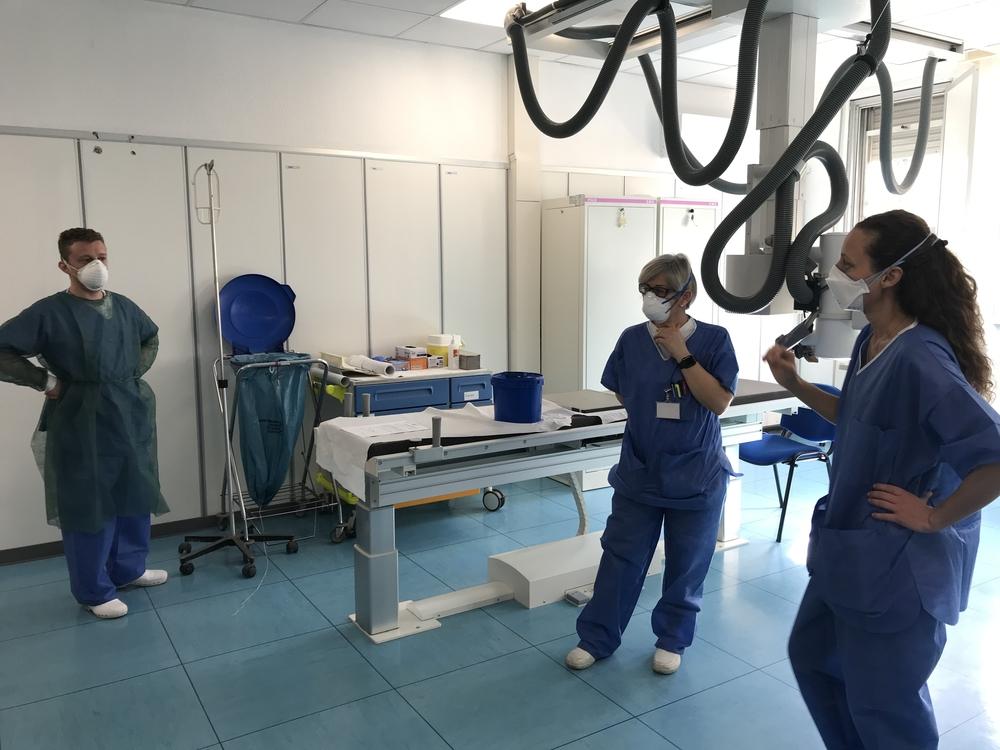March 23, 2020 – One week ago Médecins Sans Frontières / Doctors Without Borders (MSF) started to support the COVID-19 pandemic response at Codogno hospital, where the first Italian case was detected, in the region of Lombardy, northern Italy. Half of the 100 beds in this hospital are currently dedicated to patients receiving care for COVID-19. The MSF team, made up of doctors, nurses and hygiene experts, works every day with hospital staff, including healthcare workers and cleaning teams, to support them. One of the key aims of our team is to protect hospital staff from being infected with the virus.
The rapid spread of this new and little-known virus, the huge influx of patients at a frenetic pace, and the widespread shortage of personal protective equipment throughout Italy are all factors that expose frontline health workers to great risk of infection. More than 3,500 health workers in Italy have tested positive for COVID-19. The protection of health staff is as crucial as ever, because they represent the front line in the fight against the virus.
The MSF team is working with as many hospital staff as possible, from all departments, in cooperation with the hospital hygiene service, to increase the knowledge among staff on how to protect themselves from the virus while ensuring the best care possible for the patients.
“With all that the hospital staff must do to care for the patients, they have little time to think about themselves,” says Carlotta Berutto, nurse and coordinator of the MSF intervention in Codogno, with over 10 years of experience in humanitarian missions abroad. “Today we’re helping them to fight the pandemic safely, so they can continue their work taking care of all patients, those affected by COVID-19 and all other patients who need treatment.”
“When we registered the first case, the virus was already circulating. Now we need to manage this epidemic and avoid new infections,” says Dr Andrea Filippin, director of Codogno hospital. “MSF’s support is very important, and we have been learning a lot together in the fight against this virus.”
Among the activities supported by MSF in Codogno hospital is the identifying patient and staff flow within the hospital, to help separate wards that could be contaminated from the wards less at risk.
“This emergency affects us all. For this reason, the response needs teamwork,” says Angelo Rusconi, an MSF water and hygiene logistics expert working in Codogno. “We are sharing our experience in managing large epidemics with our colleagues in Italy, working as one unified team.”
MSF has also launched activities in Codogno to support family doctors and health workers, who provide care to patients at home when they do not need hospitalisation. MSF is also supporting staff of a nursing home for the elderly where some cases emerged. Our teams are also working in other hospitals in Lodi province, where new patients continue to arrive every day.
